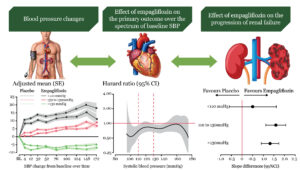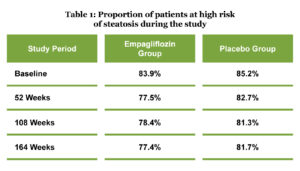Aaqib M., et al, American Journal of Therapeutics 29(3):p e322-e333, May/June 2022. | DOI: 10.1097/MJT.0000000000000925.
Background:
Sacubitril/valsartan (LCZ696) has progressed to be one of the most promising medication since its approval for chronic heart failure with reduced ejection fraction. Recent data have suggested a superior blood pressure control with LCZ696.
Data Sources:
Randomized controlled trials (RCTs) comparing the efficacy and safety of LCZ696 against a placebo or angiotensin receptor blocker (ARB).
Study Design:
We used a change in systolic and diastolic blood pressures, both sitting as well as ambulatory, to calculate relevant effect sizes with their standard errors from the available change in mean and SD data. In addition, we also collected categorical data for the reported adverse effects from these trials. We performed a series of pairwise meta-analyses between LCZ696 versus an active comparator or a placebo.
Results:
Eleven RCTs with a total of 6028 participants had the relevant data available. Our meta-analysis showed that LCZ696 is an effective and a safe treatment for hypertension. It outperformed ARBs in every category, and the results are consistent across the different dosages of LCZ696. Compared with ARBs, 200 mg of LCZ696 reduced systolic blood pressure and diastolic blood pressure (DBP) by 4.62 mm Hg (95% confidence interval, 3.33–5.90, P < 0.001) and 2.13 mm Hg (95% confidence interval, 1.69–2.57, P < 0.001), respectively. Similarly, 400 mg of LCZ696 reduced systolic blood pressure and diastolic blood pressure by 5.50 mm Hg (2.94–8.07, P < 0.001) and 2.51 mm Hg (1.80–3.21, P < 0.001), respectively, in comparison with ARBs. The adverse effects with LCZ696 were not significantly higher compared with ARBs or placebo.
Conclusions:
Sacubitril/valsartan is more effective for the management of hypertensive patients, compared with an ARB. Long-term prospective studies are required to identify whether this result translates into morbidity and mortality benefits.




